Can a Spider Get in Your Toilet? When To Worry & Prevention Tips
-
Pete Ortiz
- Last updated:
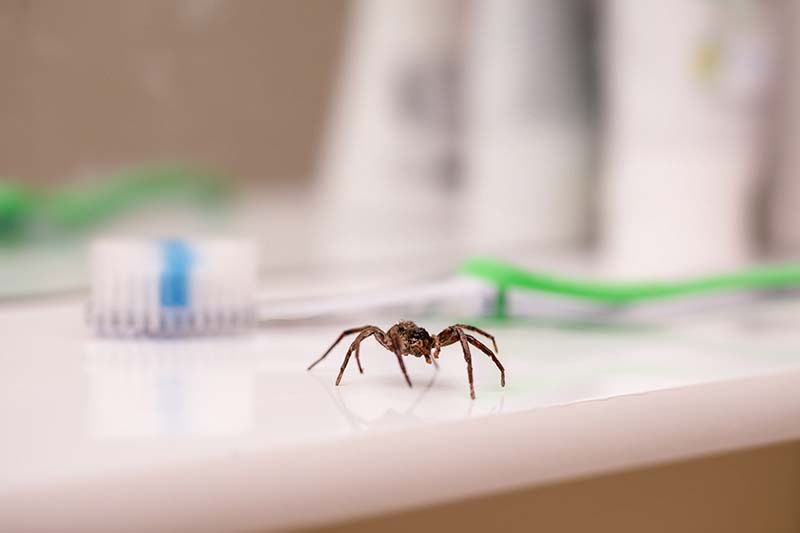
The sight of a spider can make some people jump out of their skin. And it does not help that the arachnids tend to show up where least expected. Since they are attracted to moisture, one of the places you are likely to spot a spider is in your bathroom. Sometimes they can even end up in your toilet.
Why Is There a Spider in My Toilet?
Spiders crawling up the toilet is a familiar scene in many scary movies. But in real life, that is not true by any stretch of the imagination. Your toilet drain includes a toilet trap—a curved section that keeps away intruders such as insects and arachnids. The water inside the curve makes it impossible for any spider to crawl back up.
If the spider didn’t crawl up the drain, how did it end up in your toilet? Well, getting into your bathroom is light work for a spider. Since they are tiny (about a quarter inch), they can squeeze in through small openings and cracks around doors, windows, plumbing, air vents, and floorboards.
Spiders are sneaky little creatures. They favor the dark and never make any sound. Therefore, they can easily wander into your bathroom undetected and later crawl into your toilet in search of moisture.
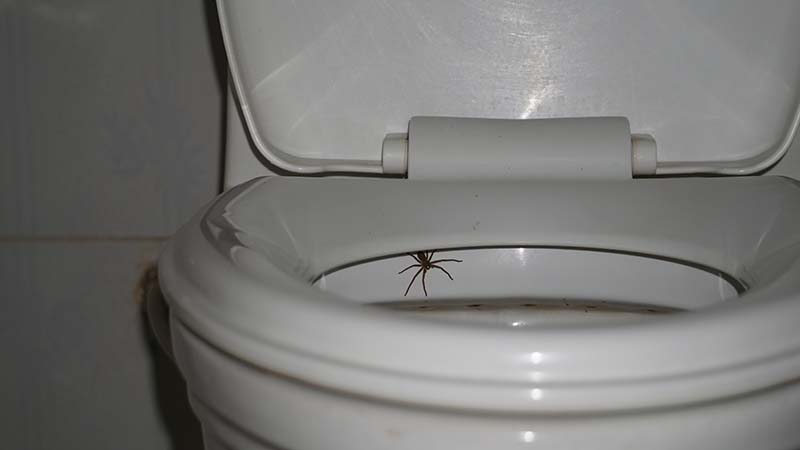
Can You Flash a Spider Down the Toilet?
Flushing a spider down the toilet is an effective way to get rid of it. As we already explained, the toilet trap will prevent it from crawling back up.
However, a live spider will put up a fight if you attempt to flush it down the drain, and it could still be floating on the water after a single flush. In such a case, flushing the toilet multiple times will do the trick.
How Long Can Spiders Survive in Water?
Flushing the toilet will get rid of the spider. However, it can take a long time before it dies.
Spiders have a low metabolic rate and require very little oxygen to survive. That means they can stay alive underwater for a long time. It can take an hour before a spider you flush down the toilet dies. Others can even survive for a day.
Can You Flush Spider Eggs Down the Toilet?
No. Flushing spider eggs down the toilet is a bad idea. That’s because they can survive in the sewer longer than mature spiders. And once they hatch, it’s back to the drawing board.
If you have to flush the eggs, ensure you crush them first. Alternatively, you can vacuum them or kill them using chemicals.
Common Spiders Found in the Bathroom
Spiders love moisture. Therefore, you can find them in the toilet, sink drains, shower area, or wet towels.
There are about 3500 species of spiders in the United States. But if you find one in any of these bathroom spots, it is likely to be a member of the following species.
1. Common House Spider
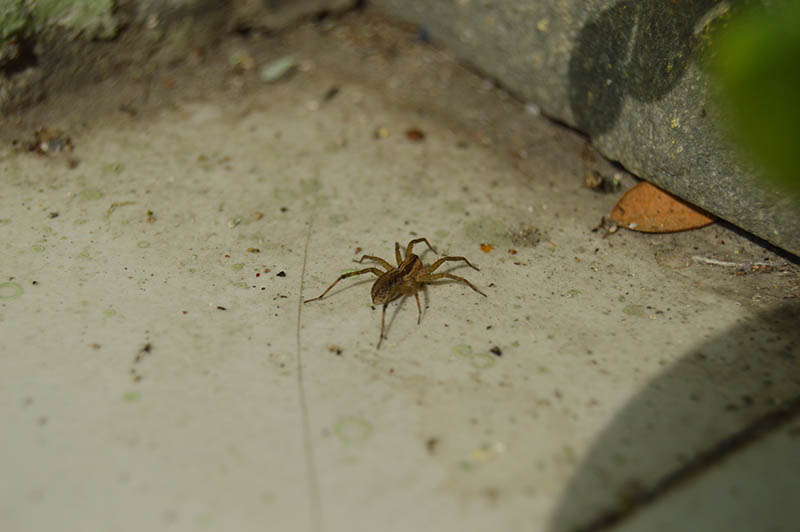
This spider is dull brown and can grow up to 6mm in length when mature. It favors undisturbed areas such as wall corners, under cabinets, inside drawers, or behind your toilet paper rolls.
Although not aggressive, a common spider will bite you when feeling threatened. The bite is not poisonous, though.
2. Giant House Spider
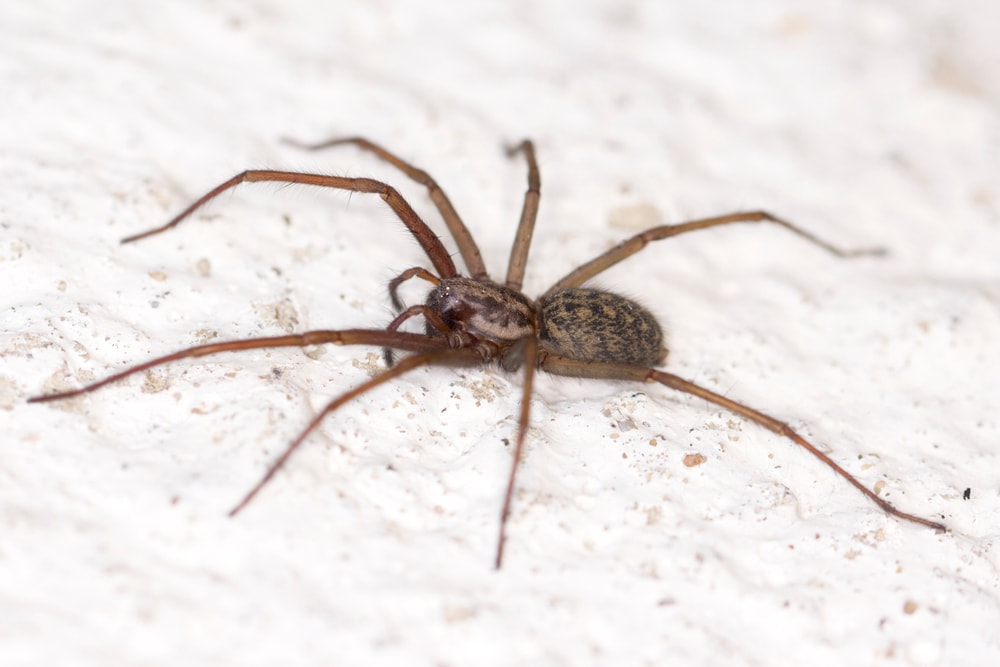
The giant house spider is the larger cousin to the common house spider. It can grow to a length of 120mm and is extremely fast.
You are more likely to find a giant house spider in your bathroom during autumn when males search for female mates. While they might also bite when threatened, they are not venomous.
3. Daddy Long Legs
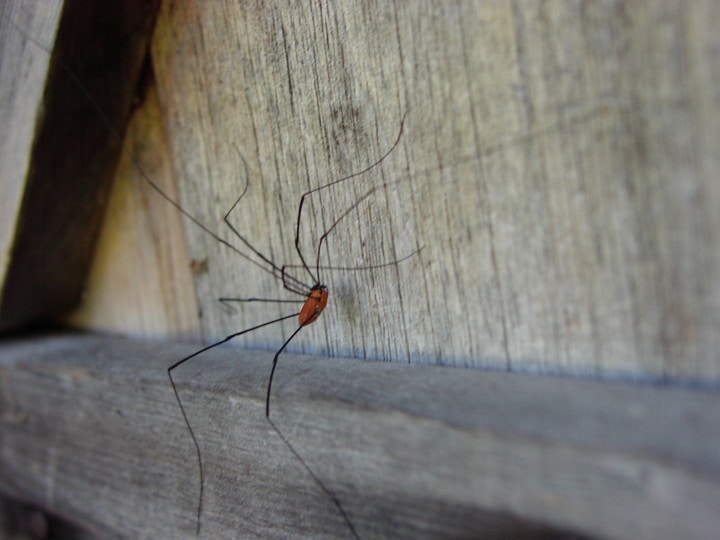
The Daddy long legs spider is so-called because of its thin and long legs. When mature, it can grow to a length of 45 millimeters.
There is an ongoing rumor about this spider’s supposed venom. Well, you can go ahead and dismiss it as a myth. Although it will bite you when provoked, you will only feel a burning sensation and nothing more.
How to Get Rid of Spiders in Your Bathroom? The 7 Effective Ways
Nobody loves to see spiders in the home, whether harmless or not. If you are tired of sharing your bathroom space with arachnids, here are some methods to eliminate them.
1. Keep the Bathroom Clean
Regularly cleaning your bathroom will help keep the spiders at bay. You can destroy their cobwebs and get into the nooks and crannies where they are likely to hide. Moreover, wiping up the damp areas will eliminate the moisture that attracts them in the first place.
Additionally, a dirty bathroom is a breeding ground for mosquitoes, bugs, and other types of insects that the spiders eat. Regularly cleaning the bathroom will get rid of the insects, thus making the habitat less luring for the arachnids.
2. Seal Spaces Around Pipes and Wires
Spiders can fit in the tiny spaces around pipes and wires. So, keep them out of your bathroom by sealing the gaps. You can apply caulk or expanding foam around the pipes under your sink or any wires going through the wall.
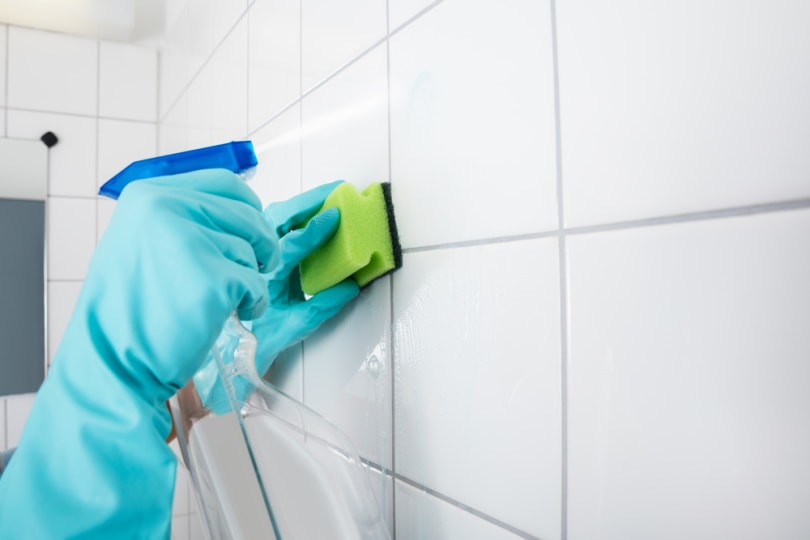
3. Replace Your Window and Door Seals
The seals around your windows and doors can get damaged or dried up with age, thus developing cracks. These openings can act as entry points for spiders. Therefore, it is imperative to replace the seals if they have suffered any damage or if your house has seen better days.
4. Don’t Forget the Baseboards
Spiders can also slip in and out through gaps in the baseboards. So, ensure you check them for signs of cracks or damage and seal them with caulk.
5. Use Commercial Pesticides
Commercial pesticides can also do the trick. Apart from killing spiders, they can also deter them indirectly by killing insects. However, you may have to spray the spiders directly since their long legs keep their bodies from getting into direct contact with surfaces.
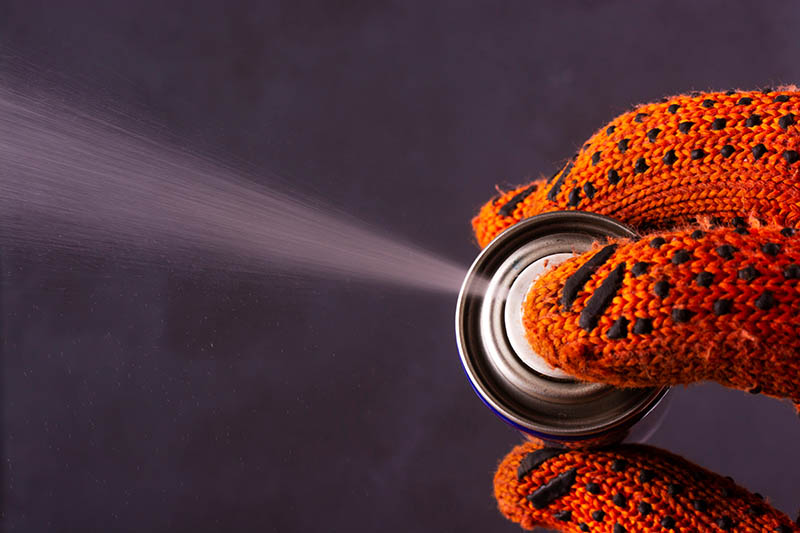
6. Use Sticky Traps
A Sticky trap is another alternative. The tool not only helps you catch spiders but also enables you to identify entry points that require sealing.
Sticky spider traps come in many designs. But they all usually have a sticky coating that traps spiders passing across the surface.
7. Natural Repellants
Commercial pesticides contain chemicals that can be harmful to people and animals. Luckily, many natural alternatives are just as effective. They include.
- Vinegar and water solution
- Essential oils and water solution
- Peppermint oil and water solution
- Salt-water solution
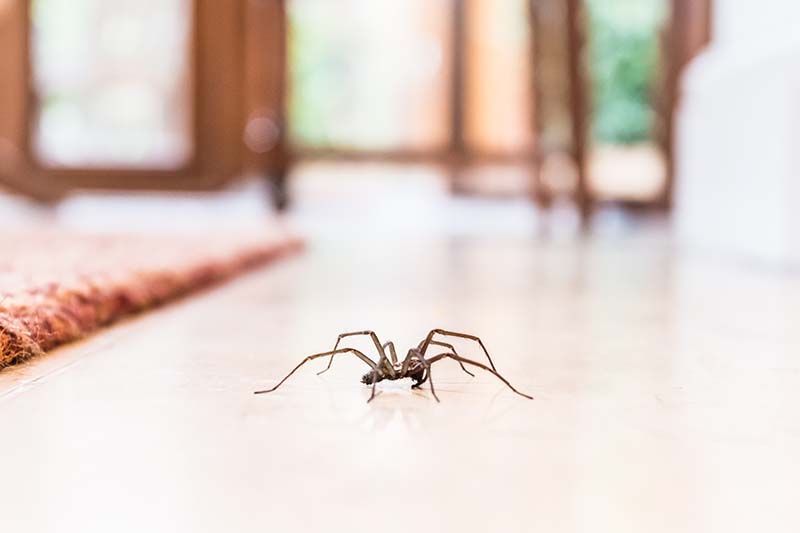
How to Get Rid of a Spider Without Killing It
Killing the spiders is not always the best option. Except for black widow and brown recluse, many of the species you are likely to encounter are not venomous.
Moreover, spiders can also be beneficial. For instance, they can help you keep pesky insects away from the house.
You can get rid of spiders without killing them in two ways:
Jar Trap
The jar trap is ideal only when dealing with one spider and not an infestation. If you spot the spider, place a transparent jar over it with the mouth facing down. Once trapped, lift the glass jar gently while at the same time sliding a thin card beneath it. You can then carry it outside and release it somewhere else.
Repelling Plants
Also, you can add repelling plants in your bathroom, such as lemongrass, lemon balm, lavender, mint, and eucalyptus. Apart from giving off a wonderful smell, they will keep the spiders away since they hate such aromas.
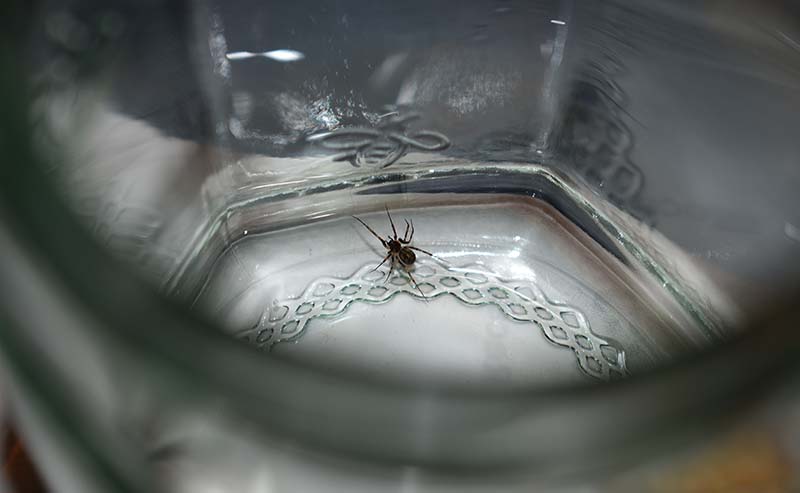
What Animals Can Crawl Up Your Toilet
Although spiders will not crawl up your toilet, some animals can. They include:
Snakes
Snakes can find a way up the toilet pipes while looking for food in the sewer. However, only the harmless kinds are likely to crawl up the toilet since they are slimmer than their poisonous counterparts.
Rats
Rats can hold their breath for a long time. Therefore, they can swim up the pipes to your toilet bowl. Like snakes, they get attracted to food. So, avoid flushing remains down the toilet if you hope not to attract them.
Lizards
Lizards love water and are always searching for food. Therefore, they can also climb up the toilet since they are small enough to fit through the pipes.
Conclusion
A spider will not crawl up the toilet. However, it can still get there through other means. You can keep spiders off your toilet by sealing any cracks or holes that can act as entry points. Most importantly, always keep the bathroom clean and dry to avoid attracting the arachnids.
If you already have a spider infestation, eliminate them using sticky traps, pesticides, and natural repellants.
Featured Image Credit: RHJPhtotos, Shutterstock
Contents



